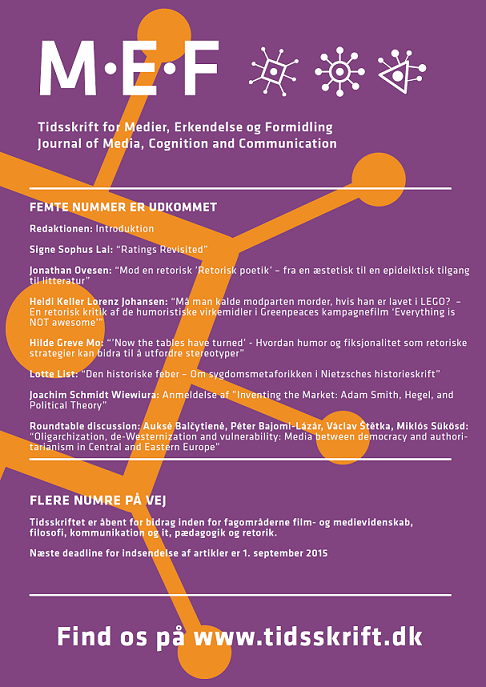Den historiske feber – Om sygdomsmetaforikken i Nietzsches historieskrift
Resumé
Artiklen undersøger betydningen af sygdomsmetaforikken i Nietzsches Om historiens nytte og ulempe for livet. Denne indeholder såvel et kritisk-diagnostisk som et praktisk-programmatisk aspekt, der begge modsvarer den målestok, som Nietzsche opsætter for den gode historiefilosofi: det kunstnerisk produktive liv. Skriftet er blevet anklaget for at lide under manglende deduktion, men denne artikel argumenterer for, at dets metode i stedet skal findes i en litterær og associativ fremgangsmåde, der manifesterer sig i sygdomsmetaforikkens konsekvente gennemførelse. Afslutningsvis vendes blikket udad mod sygdommens perspektiver i Nietzsches øvrige værk og hans reception.
The article explores the use of illness as a metaphor in Nietzsche’s On the Use and Abuse of History for Life. This involves a critical-diagnostic as well as a practical-programmatic aspect that correspond to Nietzsche’s measure for a good philosophy of history: the artistically productive life. Nietzsche’s text has been accused of lacking in deduction but this article argues that the method in this work should instead be understood as a literary and associative approach which manifests itself in the consistent use of illness as a metaphor. Finally, the attention is turned towards perspectives of illness in Nietzsche’s additional work and reception.
Downloads
Publiceret
Citation/Eksport
Nummer
Sektion
Licens
Creative Commons: CC by-nc-nd


